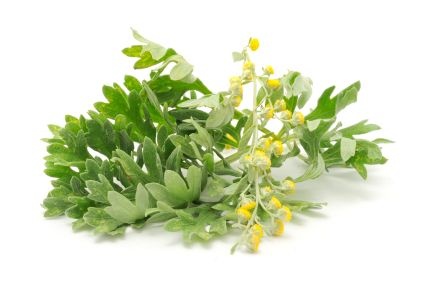
Bitter herbs are a combination of bitter herbs. Containing artichoke, dandelion, gentian, blessed thistle, chamomile and other bitter herbs that improve digestion and liver function.
Bitters are often used to aid digestion, and after eating a large or fatty meal or to help relieve stomach upset or nausea.
The bitter herbs also act as an appetizer to help stimulate the appetite before eating, usually when you need to gain weight.
Many people only know the bitter herbs are used to cure hiccups. It is an age old remedy that has been used for many years and always did his job. However, there are many other health benefits of bitter, bitter asdigestive as its use to help soothe the intestinal tract naturally noted above, ie.
Common bitter herbs used in herbal Bitters
Artichoke leaves
Although most bitter herbs are oriented digestivetract, artichoke leaves have additional benefits. They help reduce bad cholesterol, kidney disease fighter, help soothe and eliminate diarrhea, vomiting, nausea and help control heartburn, bloating and abdominal pain. There are many other benefits as well, but these are the most popular.
Blessed thistle
If by chance you are suffering from problems of gas after a meal, blessed thistle is known to control and reduce it. Moreover, this bitter herb is known for helping in various areas including wound healing, skin ulcers, acne and many others. If you are having digestive problems or just need something to kill bacteria, blessed thistle is the primary herb to use.
chamomile
Digestive bitters are extremely useful to give you a healthier body, but chamomile has additional advantages. This slightly bitter herb dates back to Roman times as an aid to digestion problems. However, we now use chamomile for a number of reasons. Most notable is that soothe colds, reduce inflammation of the gums, or even to fight diaper rash or chickenpox.
dandelion
Probably one of the bitter herbs overlooked in the market is the dandelion. Although known as a bitter herb, some companies still consider it to be just a weed. However, there are many health benefits of dandelion include the fight against bacterial infections, acne, arthritis, high blood pressure, and even PMS.
fennel
There are many benefits to ingesting herb fennel. Most notable is its ability to combat anxiety, depression, and respiratory congestion and itsbenefits for the digestive system. Fennel also works hand in hand with the fight against cancer, such as those undergoing chemotherapy can take fennel later to help rebuild your digestive system.
gentian
This wonderful bitter herb is probably the most beautiful will see in its original form. When used for treatment, you will notice gentian be very effective for digestion with its ability to increase gastric secretions, promote healthy digestion and soothe an upset stomach.
Gentian is normally used with other herbs, where the combined efforts bring better results. Is commonly combined with other bitter herbs mentioned on this page in bitter herbs, and Bupleurum root in Chinese bitter.
orange peel
One of the most popular herbal ingredients in bitter orange peel is. It has been used for years to work as an anti-inflammatory regime and curbs problems with digestion. However, the orange peel is not only used for digestion. It is also a remedy for lowering blood pressure and bad cholesterol levels.
yarrow
Long ago, yarrow was used in Roman times to heal wounds. Indeed still used today to help stop the bleeding. Yarrow, a slightly bitter herb also helps solve stomach cramps and muscle spasms.
absinthe
The biggest benefit for Absinthe is its ability to control and preventirritable bowel syndrome. With the addition of absithin and anabsinthin, Absinthe is a strong bitter herb that helps digestivetract function correctly. A small dose of this bitter herb also help relieve heartburn.
Using Herbal Bitters
Most bitter herbs can be used in teas or tinctures. Many are also available in capsule form. There are also some wonderful bitter herbs combinationsthat can be taken diluted in water.Bitter herbs are a combination of bitter herbs. Containing artichoke, dandelion, gentian, blessed thistle, chamomile and other bitter herbs that improve digestion and liver function.
Bitters are often used to aid digestion, and after eating a large or fatty meal or to help relieve stomach upset or nausea.
The bitter herbs also act as an appetizer to help stimulate the appetite before eating, usually when you need to gain weight.
Many people only know the bitter herbs are used to cure hiccups. It is an age old remedy that has been used for many years and always did his job. However, there are many other health benefits of bitter, bitter asdigestive as its use to help soothe the intestinal tract naturally noted above, ie.
Common bitter herbs used in herbal Bitters
Artichoke leaves
Although most bitter herbs are oriented digestivetract, artichoke leaves have additional benefits. They help reduce bad cholesterol, kidney disease fighter, help soothe and eliminate diarrhea, vomiting, nausea and help control heartburn, bloating and abdominal pain. There are many other benefits as well, but these are the most popular.
Blessed thistle
If by chance you are suffering from problems of gas after a meal, blessed thistle is known to control and reduce it. Moreover, this bitter herb is known for helping in various areas including wound healing, skin ulcers, acne and many others. If you are having digestive problems or just need something to kill bacteria, blessed thistle is the primary herb to use.
chamomile
Digestive bitters are extremely useful to give you a healthier body, but chamomile has additional advantages. This slightly bitter herb dates back to Roman times as an aid to digestion problems. However, we now use chamomile for a number of reasons. Most notable is that soothe colds, reduce inflammation of the gums, or even to fight diaper rash or chickenpox.
dandelion
Probably one of the bitter herbs overlooked in the market is the dandelion. Although known as a bitter herb, some companies still consider it to be just a weed. However, there are many health benefits of dandelion include the fight against bacterial infections, acne, arthritis, high blood pressure, and even PMS.
fennel
There are many benefits to ingesting herb fennel. Most notable is its ability to combat anxiety, depression, and respiratory congestion and itsbenefits for the digestive system. Fennel also works hand in hand with the fight against cancer, such as those undergoing chemotherapy can take fennel later to help rebuild your digestive system.
gentian
This wonderful bitter herb is probably the most beautiful will see in its original form. When used for treatment, you will notice gentian be very effective for digestion with its ability to increase gastric secretions, promote healthy digestion and soothe an upset stomach.
Gentian is normally used with other herbs, where the combined efforts bring better results. Is commonly combined with other bitter herbs mentioned on this page in bitter herbs, and Bupleurum root in Chinese bitter.
orange peel
One of the most popular herbal ingredients in bitter orange peel is. It has been used for years to work as an anti-inflammatory regime and curbs problems with digestion. However, the orange peel is not only used for digestion. It is also a remedy for lowering blood pressure and bad cholesterol levels.
yarrow
Long ago, yarrow was used in Roman times to heal wounds. Indeed still used today to help stop the bleeding. Yarrow, a slightly bitter herb also helps solve stomach cramps and muscle spasms.
absinthe
The biggest benefit for Absinthe is its ability to control and preventirritable bowel syndrome. With the addition of absithin and anabsinthin, Absinthe is a strong bitter herb that helps digestivetract function correctly. A small dose of this bitter herb also help relieve heartburn.
Using Herbal Bitters
Most bitter herbs can be used in teas or tinctures. Many are also available in capsule form. There are also some wonderful bitter herbs combinationsthat can be taken diluted in water.



